Andrey Gromkovskiy, managing Director of digital business of the Fox company in Russia and the CIS, and Viktor Chekanov, General Director of online cinema Megogo, Victor Chekanov, over a cup of coffee talked about the present and future of online cinemas in Russia, the experiments in the market of digital video and a little about themselves in the cozy atmosphere of Beverly Hills Diner restaurant at Nikolskaya
 Andrey:
Andrey:
– There is online cinema Megogo, and it is obvious that there are many online cinemas. What are your differences from others and how do you define these differences?
Victor:
– Look. There is classy and cool ivi, which is very strong in the film part, has a very good product, they work great with the audience, with subscriptions, and they have a great catalog and the best partnership. This is the first serious player among Russian online cinemas. There is OKKO, which is strongly focused on SMART TV; they are probably the best in it. OKKO has very beautiful product of high quality – it is a joy to watch them. And here we are, so fashionable and beautiful, especially the last time. With cool film library, with subscriptions, where there are movies and TV. By the way, the availability of TV channels seriously sets us apart from the two players I just mentioned. Plus we are most experimenters on the market; we implement many new projects, both good and bad. Users don`t even see these experiments, but we are looking, and if any of them is positive if we see something interesting, we are developing it further and continue to work with it. Many of the products that make us different from others are, in fact, the results of our experiments. And if we talk about how we look like in the eyes of the user, it is not quite appropriate to hear my opinion – we must listen to the opinion of analysts, the measures, conduct polls, etc. But I understand that for users we are more unique than any of the other services because we are very good in mixing what other have not yet learned to mix.

Andrey:
– Tell me about yourself, how you became the leader of the fast-growing company? I know you worked in the content business, and in platforms, and in the technology business. This is a rare experience in our industry, when one person combines several areas.
Victor:
– I worked in some related areas before Megogo. It was the mobile operator and the content provider and the channel. I worked for TNT, but I used to deal with non-broadcast activity of the channel. In particular, it was distribution of the brands of the channel offline. It was DVDs and CDs, and even work with one of re-sellers of Apple at that time. We had a great team. I was also involved in many special projects that were on-air and not. For example, Vika Virta was sitting next to me, she was making a Dom-2 magazine. After TNT I went to the Yota service unknown at that time, to the part that was making media services of Yota – it was Yota- video, Yota-music, Yota-books. And after that I moved to Rambler, where I was distributing portal services, but to a different digital. In fact it can be called something between marketing and traffic management. Only I did not buy traffic, I did not deal with context, but I was dealing with partnerships. At that time we collected a large number of partners important for the Rambler Company, it was unification of Rambler and Afisha, and I made many partnerships for Afisha too.
Andrey:
– How did you come to Megogo?
Victor:
– I met colleagues who started making this service and later headed it in Russia, literally after a couple of months.
Andrey:
– It is no secret that a large part of your business is connected not only with Russia but also with countries of the CIS. And it is obvious that the standard of living and many other features of these markets are different. What are the additional features it creates for your business? How it affects, for example, relationships with distributors of content and the user? How do you solve these issues?
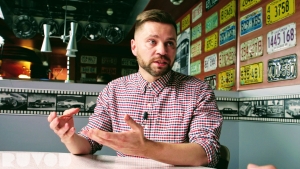 Victor:
Victor:
– You should understand that Megogo is available worldwide. But since Russia and CIS are our major markets so we look at the following things: what is the audience in what country, what is the level of life, and by which models it is better to monetize the content. For example, Kazakhstan. In Kazakhstan mostly cardholders go to the ATM, take cash, then go to the terminal and pay for access to a particular service through the terminal. Moreover, in Kazakhstan, banks themselves insist on this model, because in order to make access to the digital pay services cardholder still need to come to the Bank and write a separate statement. Therefore, Kazakhstan payment market is still developing. Yes, the situation is improving and they are paying more and more now. But for us, Kazakhstan is a mixed model – advertising and paid. Belarus is another story. There is one monopoly cable operator, and there are several mobile operators. Through interaction with them we get a very good amount of the audience and the audience trusts these operators. Plus the advertising model works good there, paid models are gradually increasing. It’s very promising, strong market. Each country can be discussed separately. We have our region offices in every country where we are present. Offices are dealing with all partnerships, and affect how a product looks on a particular territory. Though, Megogo is different in each country.
 Andrey:
Andrey:
– How do you see the market, including Russia? What grows faster, advertising model, subscription or transactional model?
Victor:
– I am not going to talk about the market, I will tell about us, because we are a significant part of the market. Subscription is growing the fast, transactional models are growing fast but a little slower than subscription. The advertising model is growing slightly less than the previous two models. However, all three models are growing quickly. Europe has not yet dreamed of the growth of the advertising model in Russia, which we see now, or maybe they have experienced these moments before. Next year will be very interesting – both in terms of advertising and in terms of development of transaction models. We will show rapid growth, also due to emergence of new technological formats of content that probably will slightly increase its cost. And a little bit improve – I hope so – the cost of one advertising contact digital.
Andrey:
– Most online cinemas operating in Russia recently are very focused on the subscription. For the last year, approximately. We also know that this business was not stunningly successful. It’s growing, but when you start to go into the methodology of counting subscribers, it appears that the outflow is very high. People try, stay for a month or two and then are leaving. The actual number of all subscribers of legitimate online services is no more than half of million people, according to some counting. It is quite limited market, although it is growing. Why the subscription does not work for us as it works in developed markets? In the West, for example. And what should be changed so the subscription will become a mass product, where there will be tens of millions of people, like in China, for example.
Victor:
– Let`s talk about the measurements. Some of the analytical Agencies very efficiently carried out the measurement, after filling in the questionnaires they are asking: what do you mean, by making this figure in the survey. Is it the user who spent with you two or three months? Or the user, who paid once, looked and left? We always explain. Another question is how well it is reflected in the final report. One way or another, different players have different interpretation of the questions. Not all of the players are willing to fully disclose all information sometimes. About 500 thousand users who are paying for the subscription now in Russia, as you said. Let’s look at the capacity of the market. We have the market capacity many times more than the amount of users who are currently paying for a subscription. Then comes a psychological factor, not everyone is ready to put information about their card to some interface, because they have only one card, and salary or pension comes to it. Not everyone knows how to do it. Not everyone can separate pirate service from legal. Not everyone knows why they need it. In the end, mane people use cards to pay for all sorts of digital services, we have a growing e-commerce, people pay by cards for different products or services. Here we are in a catch-up role, because e-com did it first, and we`re going after we catch up paying users with digital services. When we will be as cool as China or the States? I don`t know. We have a different way. We don’t have half a billion people. I don’t know if it`s good or bad. States have a very high price tag, their subscription costs many times more than ours. Much larger fees of online cinemas allows them to purchase more expensive content and produce content on their own, for themselves, and not give it to anyone. This leads us to the fact that when Russia grows in purchasing power, then online cinemas will be operating for successfully together with the actual coverage of the market capacity and growth of the check.
 Andrey:
Andrey:
– You’re one of the rare OTT video platforms in Russia, which allows watching regular TV channels through your service, subscribing to them. How this business is growing? Is this a real competitive advantage for you? And how it fits into the logic of the subscription? Is it popular? What do users think of it?
Victor:
– The user, who gets channels along with a subscription to movies – gets double convenience. If he can’t choose what to watch, he can choose which channel to watch. We have over 200 channels now – the choice is huge! And it works just fine. We have more tools to attract audience. We can attract the audience to watch a film or a channel or event, which is now shown on a particular channel. And according to our estimates, over 30% of all purchases of subscriptions are initiated by promotional of television part. According to our measurements, users who watch TV and movies – this intersection – is 80%. Only the remaining 20% are paying attention to either the one or the other part.
Andrey:
– You are talking about TV channels and how they attract additional users to your subscription. But your competitors are not in a hurry, or, at least, have not yet launched such a service. Why? And why you are the first platform in the Russian market, which did this? It is obvious that many online cinemas; video platforms on the West launched both linear and non-linear services. Why Russia has so few of them?
 Victor:
Victor:
– Especially for RUVOD, I will tell. Here we are competing not with online cinemas, but with PAY-TV services. And we are seriously different from PAY-TV services because we have film content. Thus, we become either a new generation TV for all or we are virtual PAY-TV operator, which is available on any platform, any operator, any device, if it is able to do two things: show a video and connect to the Internet. I will add that, perhaps, some online cinemas soon will repeat our steps in relation to TV channels that we made 2-2. 5 years ago. In this case, we just set a trend.
Andrey:
– You’re one of the most active platforms in terms of marketing and partnerships. You told me about your previous experience with partnerships. Why partners want to work with you? What is the secret?
Victor:
– It is simple – we don`t do marketing for marketing, or marketing for development of marketing budgets. We don`t have such term as “marketing budget”. If the need to pay for something, of course we’ll pay, but we will see a billion times before – whether we have to pay, whether it will benefit us. We are making so-called “native marketing”, i.e., any marketing campaign needs to be of interest to three parties: the user, the partner and us. If any of the three parties is less interested in what we do, we will not do it. Therefore, I think the majority of partners are interested in us.
 Andrey:
Andrey:
Please tell us about the console. You announced the release of the console. I am very glad that you make such a bold move, but I remember companies that tried to produce consoles in our market. Many market experts say that it is possible to release the console only if it has subsidy, because most people who buy the console, not really willing to buy it. How will you solve this problem? How do you see the development of this business?
Victor:
There are two aspects. The first is that many companies which failed in console business did exactly console business, with service elements attached. We have grown to the fact where the service itself is interesting to the users. Here the console is one of the components of access to our service. The second aspect is that in Russia there is a huge number of televisions that you can connect devices, but they still can’t connect to the Internet. Thus, our console is the way to reach the user, which sooner or later will be ours, but we want to reach out to him earlier, before he buys an expensive TV. Maybe he already knows us by smartphone app or web-version, and wants to watch us on TV. I think this is the right step. Of course, we will see how this will work in fact, but we believe in some kind of minimal success. We are already getting a huge number of orders both from individuals and from companies, despite the fact that we just announced consoles, and actual sales will begin only after two months.
Andrey:
Recently, my colleagues and I discussed what Megogo filming its reality show. Some Russian producers also launched reality shows recently. Timur Bekmambetov, for example. What is the thing of reality show from Megogo? What, why? Whether Ksenia Sobchak will be in it?
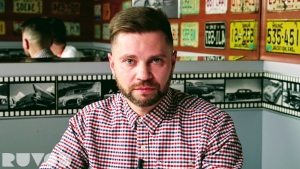 Victor:
Victor:
Unfortunately or not, not all reality shows, which are produced in Russia, can be lead by presidential candidate. Why do we need this? This is a serious experiment. It’s a reality show, the essence of which, on the one hand, is similar to other reality shows, but it is done not for TV but for digital. It has a different format. We will see how format that we came up with will be consumed by our user. This reality show works well with who we are. It’s about how to be famous: movie stars, TV stars, etc. The Show is called “Movie Academy”. Rising actors and students of theatre and movie Universities are going to compete with each other for the prizes. Prizes are starring roles in major content projects in Russia next year.
Andrey:
– Great story! Good luck with it! And I hope that we will see new stars under the Megogo brand.
Victor:
– Thank you!


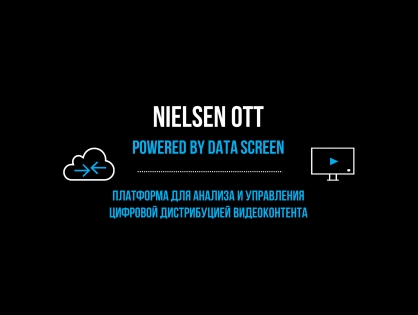
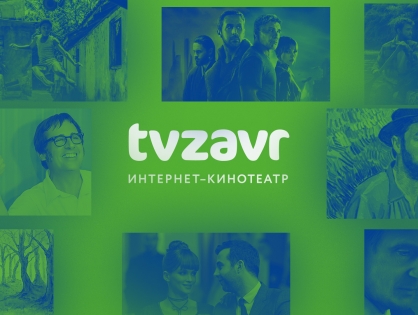
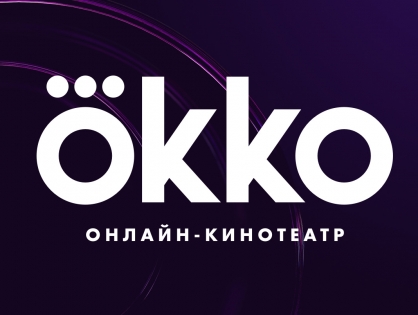
Отправить ответ